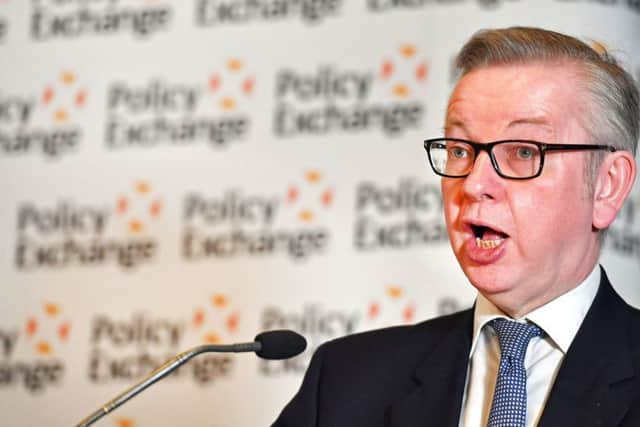Prices and export markets still under threat
and live on Freeview channel 276
Given the politics now unfolding at Westminster, which will get worse next week when Brexit dominates the Commons agenda, agriculture is probably the last thing on the mind of the DEFRA secretary, Michael Gove. This week he has been positioning himself, yet again, to pounce should Theresa May fall as Conservative party leader. This took the shape of a left of centre attack on the excesses of capitalism and business ethics. This was always the danger with Gove and DEFRA. He is a political ‘big beast’ and that department was never going to deliver his ambitions for a bigger role in the cabinet or indeed for Brexit. He showed some early promise on a post-Brexit support structure for agriculture, but it is hard now not to believe his interest has faded.
This means that while the EU-27 and European Commission are pressing ahead with plans for a post-2020 CAP, we are stuck on the starting blocks, where we have been since the referendum in June 2016. This is unfair to an industry that needs long term planning, but the position of agriculture mirrors the concerns of other major industries in the UK. That is that politics has replaced economic realities, with what looks like a fight to the death going on now in the Conservative party over Brexit. One irony is that the thinking in the UK and Brussels about the future shape of farm support is becoming more closely aligned. This is about getting payments to active farmers rather than big landowners and the need for the policy to be seen to be delivering public goods, in the shape of higher environmental standards.
Advertisement
Hide AdAdvertisement
Hide AdThe logic of this approach has been underlined in a report from Commission economists at its joint research centre (JRC). This suggests that with the current direct payments model 27 per cent of payments are capitalised into higher land rental costs. The result, they say, is that ten billion euro in payments from the taxpayer fail to reach the farmers they were supposed to help. The case for radical change in the UK, and indeed the 14 other ‘old’ EU member states, is even more marked. In these countries the average ‘leakage’ of direct payments from farmers to landowners is put at over 40 per cent. The UK is marginally below the average for these 15 member states.


If Gove needs a justification for radical change, to get taxpayer funds where they are intended to go, this report makes his case. It argues that the post-2020 CAP should not be about getting payments to owners of agricultural assets but directly to farmers. Gove could not have put it better himself, although it would be ironic if a Brexit advocate found himself relying on European Commission economists to justify the centrepiece of his plans for farm support.
This is by no means a revolutionary finding, and indeed the JRC has been warning about this since 2013. It was also raised in New Zealand back when subsidies were scrapped there, with claims that they did not directly help farmers, but were capitalised into higher land costs. The same happens there now when milk prices rise, and on that basis it has to follow that high conacre costs here reflect the capitalisation of direct payments into land values.
The approach to agricultural support advocated by Gove made a lot of sense when it emerged, but the problem remains that the debate has not progressed. This is in contrast to the position in Brussels, where member states, the Commission, MEPs and the farming lobby are all fully engaged in discussions about the future shape of the CAP and the budget that will be available for it. This is healthy, but we are in danger of waiting for the politics of Brexit to be sorted out and ending up with a rushed deal imposed on the industry with minimal debate. That is a recipe for bad decision making. Brexit is happening and there is no reasons not to take the best from the EU-27 approach, and graft onto that a new UK policy built around technical agricultural efficiency and quality food production.